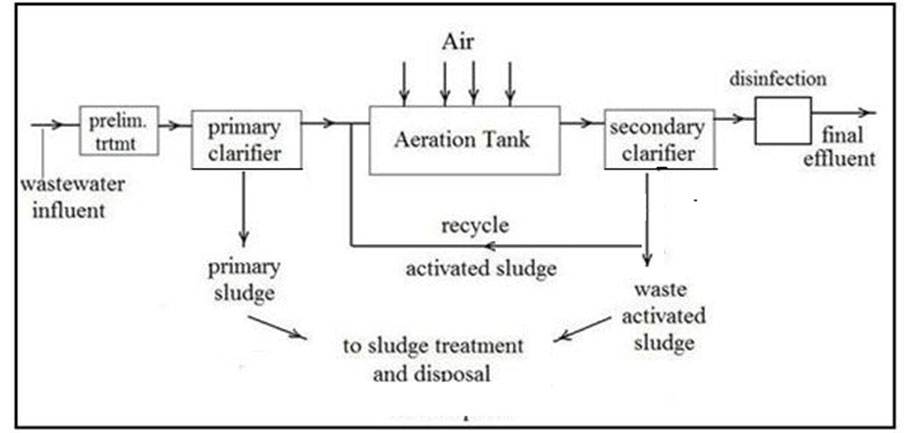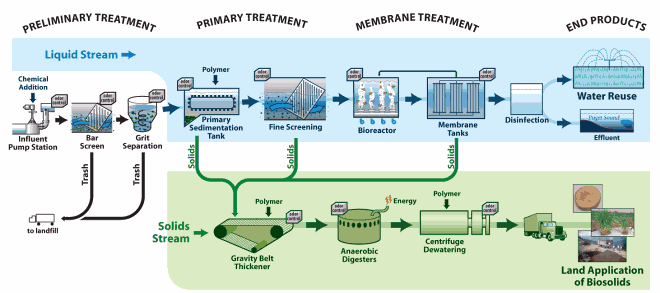Effluent treatment is process of removing contaminants from wastewater. It contains physical, biological and chemical processes. Its aim is to release safe water to environment so that it cannot harm to environment. This Article explains how to create and what are the factors needs to be considered in effluent treatment plant design process.
Read More about what is Wastewater treatment?
Benefits of Effluent Treatment Plant
All manufacturing companies face strict regulations on waste and discharge. Non-Compliance can lead to fine and operations interference from pollution control board.
Wastewater treatment plant can be beneficial for :
- Stay in compliance
- Eliminate municipal fine
- Reduce supply cost by recovering production materials out of the waste stream for recycle
- eliminate extra water usage during processing
- Reduce hauling and off-site treatment cost
Wastewater treatment plant design is primary process in which untreated waste water is analysed and based on requirement of uses of treated effluent plant is designed. Also design of effluent treatment plan is highly site and industry specific.
Design of effluent treatment plant is to treat non-hazardous industrial waste water and should focus on cost-effective, minimal maintenance and requires minimal manpower etc.
Also these plants should include processes such as pH change, aerated lagoon, polishing/infiltration ponds and sedimentation/facultative basins etc.
Design of Effluent treatment Plant
As specified above design of effluent treatment plant is highly depends on industry and site. Major points taken into consideration while designing effluent treatment plants are characteristics of site and wastewater. Untreated effluent standards and treated effluent standards are also taken into consideration in process of wastewater treatment plant design.
Also now coming to selection treatment process, it involves consideration f other multiple factors, Such as treatment efficiency, cost and reliability.
Read More What is Effluent treatment Plant?
Characteristic of Site in ETP Design
Characteristic of site like soils, topology, geology, hydrology, climate and land use are taken into consideration while designing ETP. Knowledge of Depth of rock layer and topography (it’s the way where height and depth of land shown in green and yellow Color in map) also helps in designing of ETP for using gravity flow and burial of pipes which are most necessary.
Soil thickness, its content, its characteristic, organic, inorganic matter and permeability (capacity of holding water) are also taken into consideration in ETP design Process. ETP plant may affect land used in ETP construction.
Also precipitation is considered when infiltration is problem and evapotranspiration used when wastewater treatment includes process of evaporation.
Characteristic of Wastewater in ETP Design
Characteristic of wastewater must be taken into consideration in terms of physical, chemical and biological characteristic. Size of effluent treatment plant i.e. ETP is depends upon its flow (measured in m3 / day. Flow of wastewater should be estimated correctly considering all possible reasons otherwise they will affect hydraulic computations, channels and pipes. Also if there is need to construct equalization pond due to temporary large flow (eg rainfall etc.) to maintain constant flow downstream treatment process. Equalization ponds also helps to reduce toxicity of wastewater.
Physical Characteristic of Wastewater include PH, Colour, odour, temperature. Suspended solids, grease, oil indicate highly polluted wastewater with very low turbidity. Presence of these matters indicate that need of pre-treatment before releasing to environment. Temperature is also major factor because higher the temperature higher the reaction rate.
Chemical characteristic of wastewater includes organic, inorganic in solutions and gases. Biological Oxygen demand (BOD) is indicator of amount of biological substances (proteins, fats, etc.) present in effluent. Comparison of BOD for untreated and treated gives idea about efficiency of Effluent treatment plant.
Chemical oxygen demand (COD) measures biodegradable and non-biodegradable organics. Also ratio between BOD and COD tells much more about ETP health.
Removal inorganic substances such as chlorine, nitrogen, heavy metals, cyanides phosphorous and sulphur from effluent is also important because Nitrogen and phosphorus prone to excessive algae growth and harmful heavy metals increase toxicity.
Due to microbiological actions in wastewater treatment methods produces various gases. The type of gases indicate whether aerobic or anaerobic degradation is taking place.
Questionnaire for ETP Plant Design
Below are some of the questions which will help you to understand type of effluent treatment plant is required.
What national or international standards must you comply with?
↓
Choosing an right Effluent Treatment Plant
↓
What volume of effluent do you have?
↓
What chemicals does it contain?
↓
At what concentrations?
E.g. 25/hour with COD of 500ppm, and pH of 11.5
↓
Do you plan to increase production in future?
↓
Will this increase the amount of effluent to be treated?
↓
How much can you afford to spend on constructing an ETP?
↓
How much can you afford to spend on running an ETP?
↓
How much land do you have available, or can you buy, on which to build the ETP?
↓
Which ETP expert or designer should be used?
↓
What type of plant will best suit your requirements?
(The answers that you give to the above questions will help you and
the designers to decide this).
↓
What capacity do you have in your factory to manage the ETP?
Do you need to hire more staff or train existing staff?
We offer services in Effluent treatment Plant designing, Operations and maintenance. Contact us for more information by filling up contact us form.

I found this page , after searching for about Effluent Treatment Plant Design on Google . It seems that your information is very valuable, especially as we have found here and about
time, exact time, interesting and useful things .
Good luck!
Good Diagrammatically representation . Very good questionnaire. I have to plan to do ETP in one sight that’s why I am searching
Glad you liked it.
Lots of thanks…..
Thank you Muzahid,
Glad you liked it
What is the method of effluent prosess